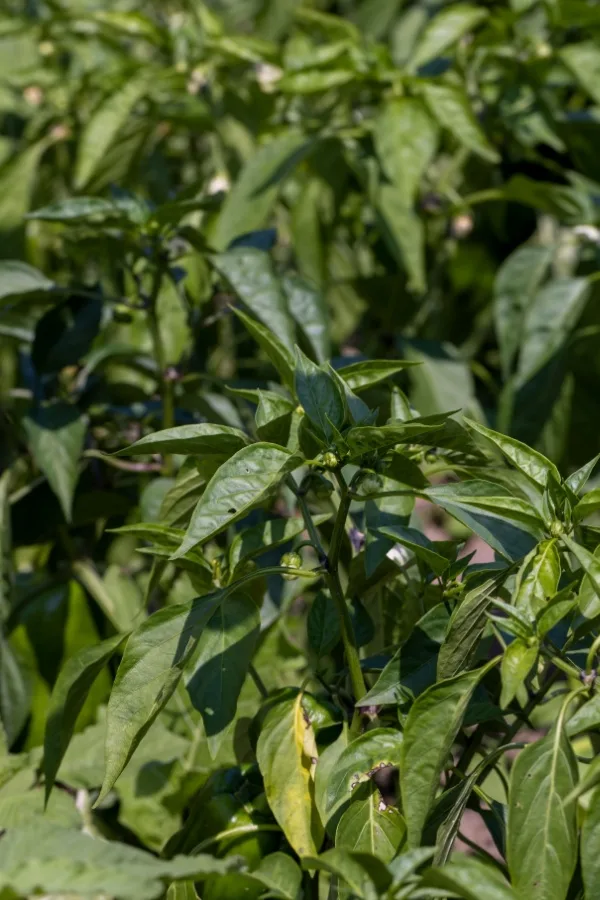Selecting the Best Fertilizers for Peppers: Specialist Recommendations
Selecting the Best Fertilizers for Peppers: Specialist Recommendations
Blog Article
Organic Vs. Synthetic Fertilizers: Which Is Best for Supporting Healthy And Balanced Pepper Plants?
In the world of supporting healthy pepper plants, the option between artificial and natural plant foods stands as a crucial choice with significant effects. While both choices aim to supply essential nutrients to support plant growth, the subtleties of their influence on the soil, plant health and wellness, and the atmosphere spark a dispute that mirrors throughout the horticulture area. Understanding the distinctive benefits and possible mistakes of each plant food kind is important for pepper farmers looking for to enhance their yields while maintaining an eco-conscious and sustainable method.
Advantages of Organic Fertilizers
Organic fertilizers use a sustainable and environmentally-friendly approach to nourishing pepper plants, supplying essential nutrients without the usage of synthetic chemicals. These all-natural plant foods are stemmed from organic resources such as compost, manure, bone dish, and algae, promoting soil health and biodiversity. Unlike synthetic fertilizers, natural options release nutrients slowly, guaranteeing a well balanced and steady supply for pepper plants to thrive.
One substantial benefit of natural fertilizers is their ability to boost dirt structure and water retention. By enhancing dirt health and wellness, organic plant foods advertise helpful microbial activity, which helps in nutrient uptake by pepper plants. Additionally, organic plant foods lower the threat of chemical run-off, securing water resources from contamination and protecting the atmosphere.
Furthermore, natural fertilizers add to long-term dirt fertility by promoting the development of beneficial dirt organisms. These microorganisms help break down raw material, launching nutrients in a kind that is easily available to pepper plants. best fertilizers for peppers. By fostering a healthy dirt ecosystem, natural plant foods sustain sustainable pepper farming practices that benefit both plants and the setting
Downsides of Artificial Fertilizers
Synthetic plant foods, unlike their natural equivalents, present various drawbacks when used to nourish pepper plants, affecting both plant health and wellness and ecological sustainability. One major downside of artificial plant foods is their tendency to seep nutrients from the dirt promptly. This quick leaching can cause nutrition inequalities in the soil, causing plants to experience toxicities or shortages. In addition, artificial fertilizers can damage valuable soil microorganisms, such as earthworms and useful bacteria, interfering with the dirt ecosystem's equilibrium.
Moreover, the overuse of synthetic plant foods can add to water air pollution. Excess fertilizers not taken in by plants can get rid of right into water bodies, leading to eutrophication, where algae blooms deplete oxygen degrees in the water, damaging marine life. Artificial fertilizers are commonly obtained from non-renewable resources, such as fossil fuels, contributing to carbon discharges and ecological deterioration during their manufacturing.
Nutrient Absorption Contrast
When comparing natural and artificial plant foods in terms of nutrient absorption, organic plant foods have the advantage of offering a more balanced and slow-release resource of nutrients. Organic fertilizers include a range of macro and trace elements that are not only helpful for the plants but additionally promote healthy and balanced soil microbial activity, which helps in nutrient uptake.
Furthermore, natural plant foods improve dirt framework and water retention ability, allowing pepper plants to access nutrients a lot more efficiently. This better dirt top quality facilitates origin advancement, making it Find Out More possible for better nutrient absorption. Artificial fertilizers, although originally boosting plant development because of their high nutrient focus, may hinder lasting nutrient absorption by derogatory soil health gradually.
Environmental Influence Considerations

On the various other hand, synthetic fertilizers, although often more immediately offered and focused to plants, can have detrimental impacts on the atmosphere if not used properly (best fertilizers for peppers). Their manufacturing requires high energy inputs, bring about greenhouse gas emissions and adding to climate modification. The drainage of excess synthetic fertilizers can pollute water resources, leading to eutrophication and hurting marine communities.
Finest Plant Food Practices for Peppers
To accomplish this, it is necessary to adhere to finest fertilizer practices customized to the details requirements of pepper plants. One important practice is to perform a dirt test before applying any type of plant foods.
One more crucial technique is to fertilize pepper plants at the best time. Typically, peppers benefit from getting fertilizer at growing and after that again when they start to flower. Over-fertilizing can lead to vitamins and mineral discrepancies and harm the plants, so it is crucial to comply with advised application prices.
Additionally, choosing a balanced plant food with an NPK ratio that matches pepper plants' needs is fundamental. Eventually, integrating synthetic and organic fertilizers carefully can aid nurture healthy pepper plants while reducing environmental effect.
Verdict

Organic plant foods provide a lasting and environmentally-friendly technique to nourishing pepper plants, supplying important nutrients without the usage of synthetic chemicals. Unlike artificial fertilizers, natural alternatives release nutrients gradually, making sure a stable and well balanced supply for pepper plants to flourish.
Artificial plant foods, in comparison to their organic counterparts, pose different negative aspects when made use of to nurture pepper plants, impacting both plant health and environmental sustainability. When contrasting natural and artificial plant foods in terms of nutrient absorption, natural plant foods have the benefit of providing a more well balanced and slow-release resource of nutrients.In addition, natural plant foods enhance soil structure and water retention capacity, enabling pepper plants to accessibility nutrients more effectively.
Report this page